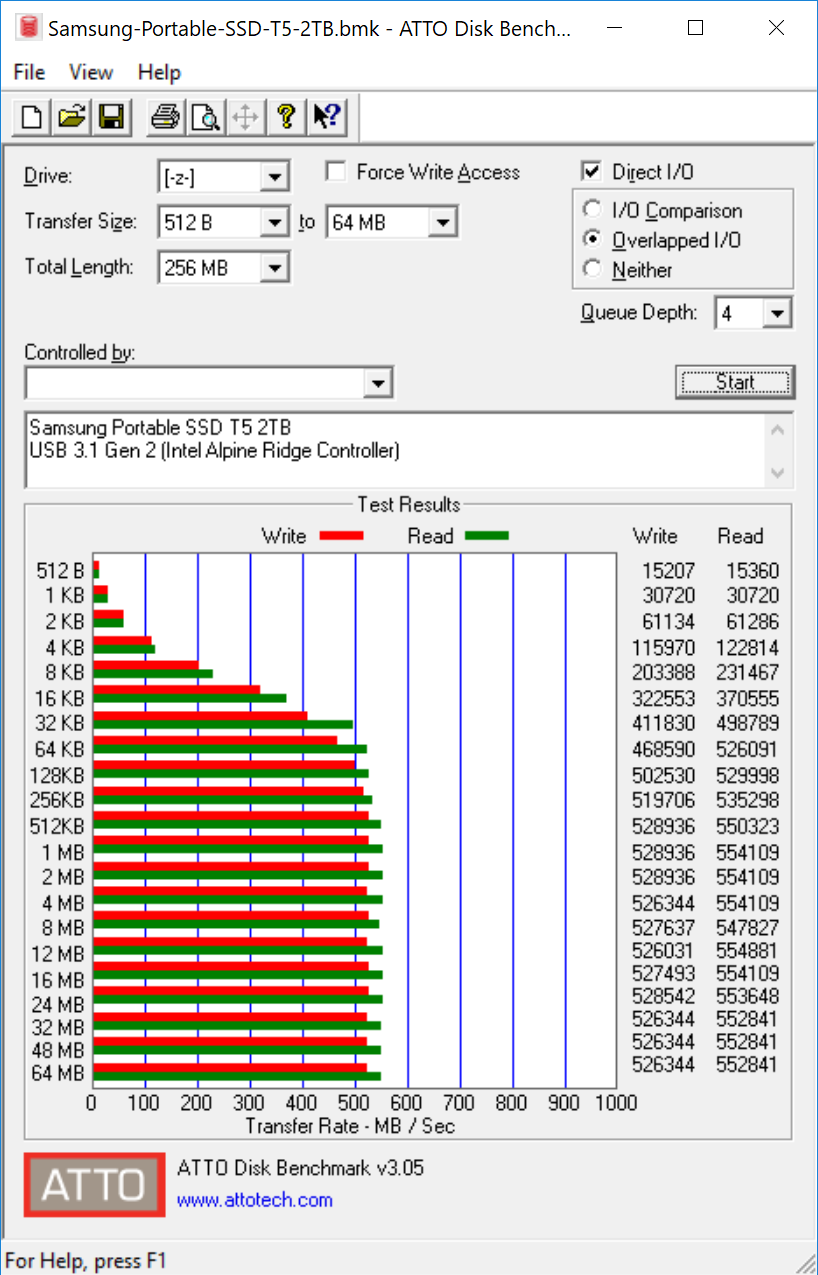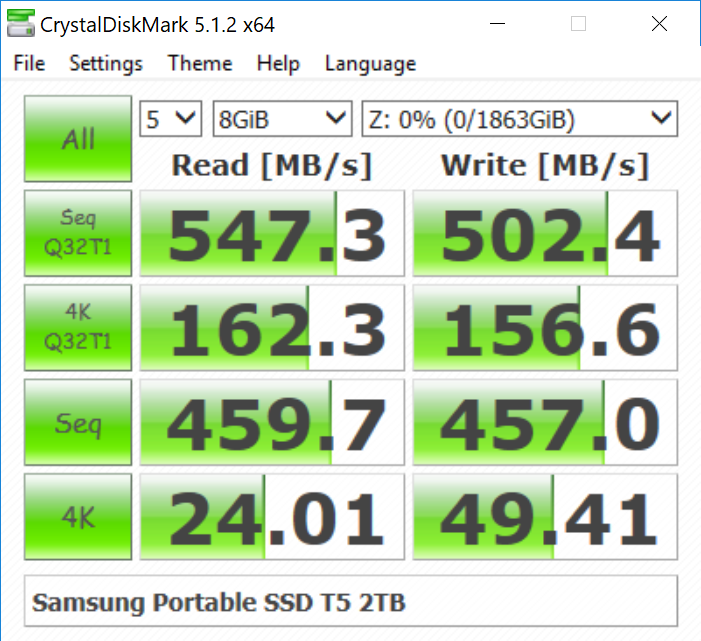Samsung Portable SSD T5 Review: 64-Layer V-NAND Debuts in Retail
by Ganesh T S on August 15, 2017 10:00 AM ESTSynthetic Benchmarks
Various synthetic benchmarks are available to quickly evaluate the performance of direct-attached storage devices. Real-world performance testing often has to be a customized test. We present both varieties in this review, starting with the synthetic benchmarks in this section. Prior to covering those, we have a quick look at our testbed setup and testing methodology.
Testbed Setup and Testing Methodology
Evaluation of DAS units on Windows is done with the testbed outlined in the table below. For devices with a USB 3.1 Gen 2 (via a Type-C interface) connections (such as the Samsung Portable SSD T5 that we are considering today), we utilize the USB 3.1 Type-C port enabled by the Intel Alpine Ridge controller. It connects to the Z170 PCH via a PCIe 3.0 x4 link.
| AnandTech DAS Testbed Configuration | |
| Motherboard | GIGABYTE Z170X-UD5 TH ATX |
| CPU | Intel Core i5-6600K |
| Memory | G.Skill Ripjaws 4 F4-2133C15-8GRR 32 GB ( 4x 8GB) DDR4-2133 @ 15-15-15-35 |
| OS Drive | Samsung SM951 MZVPV256 NVMe 256 GB |
| SATA Devices | Corsair Neutron XT SSD 480 GB Intel SSD 730 Series 480 GB |
| Add-on Card | None |
| Chassis | Cooler Master HAF XB EVO |
| PSU | Cooler Master V750 750 W |
| OS | Windows 10 Pro x64 |
| Thanks to Cooler Master, GIGABYTE, G.Skill and Intel for the build components | |
The full details of the reasoning behind choosing the above build components can be found here. The list of DAS units used for comparison purposes is provided below.
- Samsung Portable SSD T5 2TB
- Samsung Portable SSD T5 500GB
- ADATA SD700 512GB
- Corsair Voyager GS 512GB
- G-DRIVE slim SSD USB-C 500GB
- Samsung Portable SSD T3 2TB
- SanDisk Extreme 900 1.92TB
ATTO and Crystal DiskMark
Samsung claims speeds of up to 540 MBps, and it is backed up by the ATTO benchmarks provided below. Unfortunately, these access traces are not very common in real-life scenarios.

CrystalDiskMark, despite being a canned benchmark, provides a better estimate of the performance range with a selected set of numbers. As evident from the screenshot below, the performance can dip to as low as 24 MBps for 4K random read accesses. The 3x - 6x increase in performance at higher queue depths for these random accesses shows that UASP is active and working well.











38 Comments
View All Comments
timecop1818 - Tuesday, August 15, 2017 - link
> Windows XPtrolls usually bring up more obsolete stuff like lunix, you need to step your game up.
Liltorp - Wednesday, August 16, 2017 - link
Since when has "Availability in multiple colors " been an "The important features". :-)wilbert305 - Wednesday, August 16, 2017 - link
Nice article pure informative and knowledgeable thank you for sharing it. http://vidmatedownloadforpc.com/JKJK - Wednesday, August 16, 2017 - link
I have a T3 at work and was considering buying one for private use as well. But seeing this, I'll wait for the T5 to become available.AnTech - Thursday, August 17, 2017 - link
Does TRIM on Samsung Portable SSD T5 work also on Mac?JKJK - Thursday, August 17, 2017 - link
ordered a T5 1GB today :)martinsobers016 - Monday, August 21, 2017 - link
Thanks for the info. I hope it works on Mac too. Will order one soon http://www.showboxappz.netgeokon - Wednesday, September 11, 2019 - link
Is it possible to use hardware encryption on Linux? I can't seem to find any information